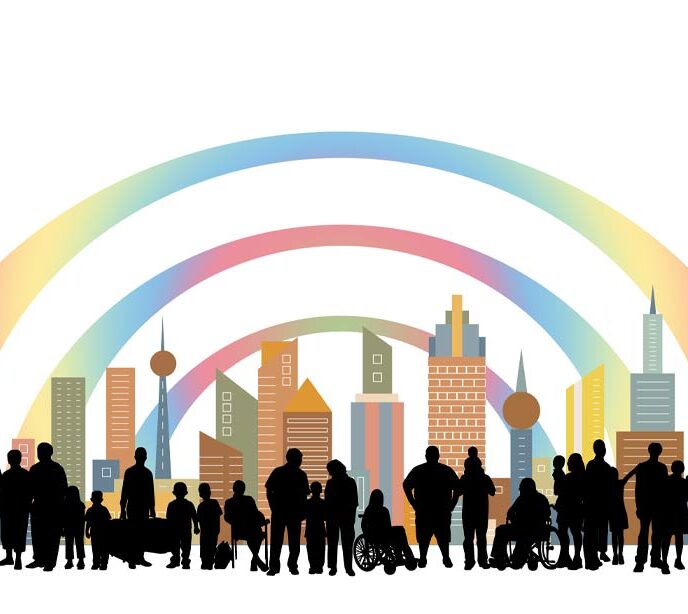Symptoms of Asperger’s Syndrome – Lighthouse Autism Center
Asperger’s syndrome is a neurodevelopmental condition considered part of the Autism Spectrum Disorder. It’s important to note that Asperger’s syndrome was once considered a separate diagnosis within the autism spectrum but was later folded into the broader category of autism spectrum disorder (ASD) in the Diagnostic and Statistical Manual of Mental Disorders, Fifth Edition (DSM-5). As a result, the term “Asperger’s syndrome” is no longer used clinically. Learn more about common signs and symptoms below.

Asperger’s Syndrome Diagnosis is Now Being Diagnosed as Autism Spectrum Disorder
Asperger’s syndrome is part of Autism Spectrum Disorder (ASD). In the Diagnostic and Statistical Manual of Mental Disorders, Fifth Edition (DSM-5), Asperger’s syndrome is no longer considered a separate diagnosis. Instead, individuals who would have previously been diagnosed with Asperger’s syndrome are now typically diagnosed with Autism Spectrum Disorder (ASD). If someone has already recieved an Asperger’s Diagnosis, it does remain, unless they are re-evaluated and a new diagnosis is given in it’s place.
Within the ASD diagnosis, the DSM-5 introduced a severity level system to help clinicians gauge the level of support an individual may require based on the severity of their symptoms. This system is divided into three levels:
- Level 1: Requiring support
- Level 2: Requiring substantial support
- Level 3: Requiring very substantial support
Many individuals who would have previously been diagnosed with Asperger’s syndrome would likely fall under Level 1 of the autism spectrum, which indicates that they require some support due to challenges with social communication and interaction, as well as restricted and repetitive behaviors, but they generally have relatively mild impairments compared to those at Levels 2 and 3.
Autism Spectrum Disorder is a neurodevelopmental condition that affects an individual’s ability to interact socially and communicate effectively. People previouslt diagnosed with Asperger’s often have difficulty understanding social cues and can have focused, sometimes intense, interests in specific subjects. They may also exhibit repetitive behaviors and adhere to routines with rigidity.
Identifying Autism Spectrum Disoirder typically involves paying attention to an individual’s social interaction patterns, communication style, interests, and behaviors from an early age, often with a professional assessment for a formal diagnosis.
Characteristics of Asperger’s Syndrome and How to Identify Them
Asperger’s syndrome, now formally ASD – level 1, can be difficult for many parents to pick up since many children display some of these characteristics as a normal part of their development. So it’s understandable why childhood Asperger’s or Level 1 ASD is sometimes diagnosed a little later than other disorders on the autism spectrum.
Join us as we take a closer look at what Asperger’s syndrome/ASD is, its signs and characteristics, how it can be managed, and more.
What Is Asperger’s Syndrome?
Asperger’s syndrome is a developmental disorder that falls into the autism spectrum. It’s a more mild type of brain disorder that affects behavior and makes it difficult for a person to communicate, interact, and form relationships with others. Individuals who would have previously been diagnosed with Asperger’s syndrome are now typically diagnosed with level 1 Autism Spectrum Disorder (ASD).
Are Autism & Asperger’s Different?
As mentioned, Asperger’s is autism spectrum disorder (ASD). Autism and autism spectrum disorder (ASD) are general terms used for grouping complex disorders affecting brain development.
- Autistic disorder
- Rett syndrome
- Childhood disintegrative disorder (CDD, also known as Heller’s syndrome)
In general, these disorders are characterized in varying degrees by:
- Difficulties in social interaction
- Verbal and nonverbal communication
- Repetitive behaviors
- Sensory sensitivities
What Are the Signs of Asperger’s/Autism Spectrum Disorder?
It’s important to be aware of the signs and symptoms of Asperger’s syndrome/ASD. Keep in mind that it is perfectly normal for toddlers to exhibit some of these symptoms, such as repetitiveness or one-sided conversations.
These are some of the most common ASD symptoms in children to keep an eye out for:
- ASD and eye contact rarely go together, so avoiding eye contact is one of the first symptoms.
- A limited number of facial expressions or awkward body positions and gestures is also often associated with autism.
- Individuals with autism tend to engage in one-sided and long-winded conversations without noticing if the listener is paying attention or if the listener is trying to change the subject.
- Appearing not to understand, be sensitive to, or empathize with the feelings of others can be a sign of autism spectrum disorder.
- Showing an intense obsession with one or two specific and narrow subjects such as the weather, snakes, basketball stats, or train schedules can be an indication of Asperger’s syndrome/ASD.
- Those with autism spectrum disorder often display difficulty “reading” other people or getting the gist of humor or sarcasm.
- Speaking in a rigid, monotonous voice or speaking unusually fast can be signs of an individual with Asperger’s syndrome.
- Lastly, individuals with Asperger’s syndrome/ASD may display clumsy movement and poor coordination.
It’s worth noting that there are some characteristics of autism spectrum disorder that should be considered strengths. These include (but are not limited to):
- Strong ability to focus
- Persistence
- Ability to recognize patterns
- Attention to detail
What Causes Asperger’s Syndrome/ASD?
Although the cause of Asperger’s syndrome or ASD is not yet fully understood, research suggests that autism develops from a combination of genetic and nongenetic, or environmental, influences.
Genetic Factors
Research tells us that autism tends to run in families If a parent carries one or more of these gene changes, they may get passed to a child (even if the parent does not have autism). Families with one child with autism have an increased chance of having another child with autism compared to the general population.
Environmental Factors
Research also shows that certain environmental influences may further increase – or reduce – autism risk in people who are genetically predisposed to the disorder. Scientists believe that a combination of genetic and environmental factors contributes to autism.
Ongoing research aims to understand whether factors such as viral infections, medications or complications during pregnancy, or air pollutants play a role in triggering autism spectrum disorder and how these factors interact and influence the development of ASD.
No Link Between Vaccines
One of the greatest controversies in autism spectrum disorder centers on whether a link exists between the disorder and childhood vaccines. scientists have conducted extensive research over the last two decades to determine whether there is any link between childhood vaccinations and autism. The results of this research is clear: Vaccines do not cause autism. The American Academy of Pediatrics has compiled a comprehensive list of this research.
Treatment Options for Asperger’s Syndrome
A holistic treatment program for childhood Asperger’s or level 1 autism is the best possible plan. A combination of speech therapy and cognitive behavioral therapy, along with the right support and medication, will benefit your child the most.
Get the Best Treatment for Your Child
Lighthouse Autism Center provides center-based ABA (applied behavior analysis) therapy and services for children with autism disorders. Our one-of-a-kind approach, Lighthouse Fusion ABA Therapy, combines compassionate care with clinical excellence to give every child the best possible treatment.
Contact us for more information on how we can help your child, and be sure to view our autism tools for parents and other autism resources.
Together, we can unlock your child’s potential
Related News

06/11/2025
Overcoming Stereotypes
Autism stereotypes are common and can have significant social consequences for autistic children. Misconceptions hinder the acceptance and inclusion of autistic children. Challenging these stereotypes is vital for creating a more understanding and supportive society. Challenging Common Autism Stereotypes When people hear the word “autism,” they often imagine a narrow set of images, like the […]

06/11/2025
What’s Next After ABA Therapy?
There are a number of reasons why an autistic child might stop ABA therapy, and one is that they have reached their goals. In this article, we take a look at what parents can expect going forward. What Are the Next Steps After ABA Therapy? As a parent, you only want what’s best for your […]

06/11/2025
Do Babies with Autism Smile?
We take a look at the importance of early intervention, some of the milestones for parents to look out for, and the more common signs of autism in babies. Do Babies with Autism Smile? Watching your baby grow is an exciting time, certainly one of life’s quiet wonders. From those first sleepy stretches to the […]


